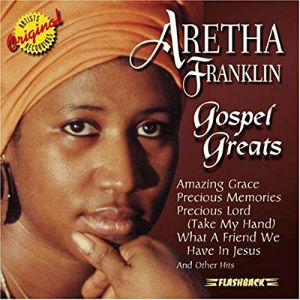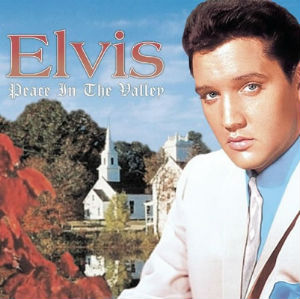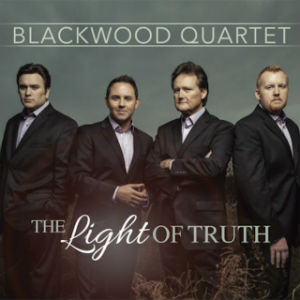Memphis at 200: Home of Gospel Music?
By Neil Earle

“Memphis likes to think of itself as the City of the Three Kings. Elvis “the King” gave us our Voice, people say; B.B. King gave us a Soul; Martin Luther King gave us a Conscience.”
The speaker? Shelby County historian and local celebrity Jimmy Ogle. He was giving one of his “Storytelling with Jimmy Ogle” talks in honor of the City of Memphis’s 200th anniversary.
Ogle’s February 14 tour of Memphis Music History was attended by well over 200 people seated wall-to-wall at the historic Pink Palace’s Mansion Theatre. Ogle deftly sketched with the help of power point how “all musical roads eventually lead to and through Memphis” – from W.C. Handy and early blues, to Isaac Hayes, Rufus Jones, and Dusty Springfield to the startling fact that more than 1000 popular songs mention the name Memphis. “No other city comes even close,” boasts Ogle.
The careers of legends such as Aretha Franklin, Otis Redding, and Johnny Cash embodying those black and white artists passing through here on their way to both coasts is evidence for the claim. What is not so well-known is how Memphis early started as a recording center, most notably the fact that both Elvis and Neil Diamond taped records at the prestigious Peabody Hotel downtown, built in 1925. “Sweet Caroline was actually written at the Peabody,” claims Ogle.

Pop Culture Pioneers
It’s hard not to take Ogle’s enthusiasm seriously. Beale Street at one time was known as the “Main Street of Negro America’” leading with W.C. Handy’s “Memphis Blues” (1905). “Poplar Tunes,” then at 306-308 Poplar Avenue, recorded Elvis Presley’s first gold record. Hotel Chisca's recording studio (WNBQ Radio AM 560) effectively launched the Tupelo lad’s career with “That’s All Right, Momma” on July 8, 1954.
Along the way Ogle squeezed in the story of Stax Records – torn down in 1989 and rebuilt in 2003 – the Memphis Horns, Carl Perkins singing “Blue Suede Shoes” over the phone to Sam Phillips of Sun Records as well as downtown tailor Lansky’s reputation as “clothier to the stars.” He threw in the lightning career of American Studios (now a Family Dollar Store) from 1962-1972 which recorded everyone from Petula Clark and Paul Revere and the Raiders to Neil Diamond (again) and B.J. Thomas. Whew! That was fast!
There is so much, so much that has gone on here in terms of music.
The Memphis region’s contribution drawing on the Arkansas-Mississippi Delta vindicates the state’s tourist association labeling Tennessee as hosting “the soundtrack of America.” Not a bad moniker.

“Then Sings my Soul”
One aspect of Memphis music that is more clearly coming into view these past years is the regions’ impact on another distinctly American art form – Gospel Music. The fact that church-trained Aretha Franklin was the first Memphian on the cover of Time magazine speaks volumes. Jess Hess of the all-black Statesmen Quartet Gospel group was probably the model for Elvis Presley’s stacatto-style of song. Hess remembers a boyish Elvis showing up at their concerts in Tupelo peppering them with performance questions. In 1955 Elvis trvaelled with them though Texas. Others recall Elvis Presley discreetly slipping in the back door of black Churches to absorb the resounding harmonies of the choir, music that sunk deep into his psyche.
Televised documentaries reveal how Elvis and Welsh singer Tom Jones, while performing at Las Vegas, would adjourn to the King’s room after their shows and spend the rest of the night singing Gospel. Both came by it naturally, Jones from his Welsh upbringing where the local church choir was perhaps the only show in town.
Gospel Music and even its cousin Soul Music breathe that deep undercurrent of the singer’s need for somehow escaping the often oppressive mundane world. Martin Luther King’s favorite hymn, “Take My Hand, Precious Lord,” an Aretha standard, is resonant with the mood of the penitent pray-er trying to break through to the One who can make sense of the perpetual struggles here below. Struggles? Yes. Life along the Delta was never a picnic (think of Johnny Cash’s first verse in “The Circle Will Be Unbroken”) and Memphis almost went under as a city in the yellow fever epidemic of the 1870s. Mesmerized audiences listening to Elvis do his rendition of “How Great Thou Art,” Aretha Franklin crooning “O Happy Day” or the Blackwoods doing “I’ll Fly Away” ensured that multiple thousands of people got to hear “a word from their heavenly Sponsor” amid powerful concerts – whether they wanted to or not!
Ironic isn’t it? One of the most technologically dependent enterprises of all – modern recording industries – curved on back like the rolling Mississippi itself through the sheer force of regional artists centered on the Bluff City to move audiences a little closer to the Center of all things. The Blackwood Brothers, after honing their gospel stylings in Choctaw County, for example, moved to Memphis in 1950, became stars on local WMCT-TV and at a funeral for group members killed in a plane crash, a young Elvis Presley was in the building. The church connection remained strong – the young John Cash and the Tennessee Two first performed to a Ladies Group at Galloway Methodist Church in 1954 in mid-town Memphis.
The Memphis 200 legacy gets us thinking. Memphis region musicians have joined their soul sisters and brothers in keeping a lively Gospel presence alive to mass audiences in venues all around the world. Thanks to Jimmy Ogle for bringing some of it back.